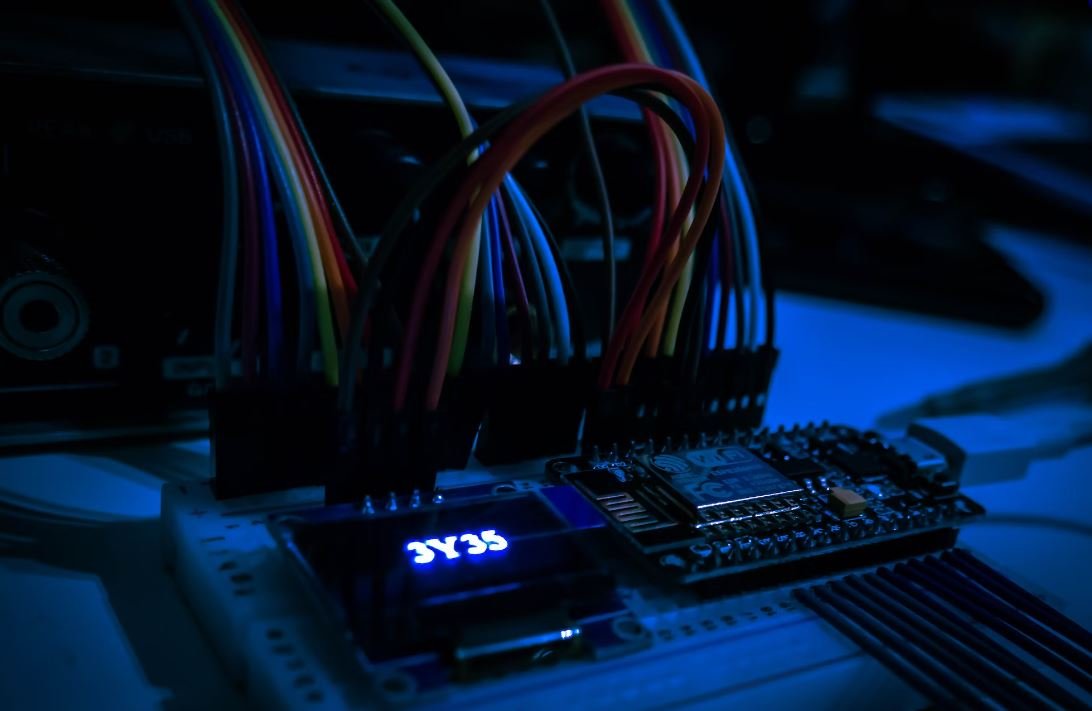How to Get AI Certification
Artificial Intelligence (AI) has become a rapidly growing field with diverse applications ranging from healthcare to finance. As the demand for AI professionals continues to increase, obtaining AI certification can significantly enhance career prospects. This article provides a comprehensive guide on how to obtain AI certification and gives insights into the key considerations and benefits of doing so.
Key Takeaways:
- AI certification can boost career opportunities in various industries.
- Learners can choose from multiple certification programs based on their specific interests.
- Hands-on experience with AI tools and technologies is crucial for certification success.
- Networking and collaboration with industry professionals can bring valuable insights and opportunities.
Getting Started: Choose the Right AI Certification Program
When diving into the world of AI certification, it’s essential to identify the right program that aligns with your goals and level of expertise. Various respected institutions offer AI certification, including renowned online learning platforms, universities, and professional organizations. Look for programs that cover fundamental AI concepts such as machine learning, natural language processing, and computer vision. Opting for a program that provides hands-on projects helps solidify knowledge and demonstrate practical skills.
Remember, selecting the right AI certification program sets the foundation for your future AI career.
- Consider your current level of AI knowledge and expertise to determine the appropriate certification program.
- Explore programs offered by reputable institutions and organizations.
- Ensure the program covers essential AI concepts and offers hands-on projects.
Preparing for AI Certification: Develop Strong AI Skills
Before embarking on the certification journey, it’s crucial to have a solid foundation in AI concepts and technologies. Engaging in self-study or taking preparatory courses can help reinforce your knowledge and bridge any existing gaps. Strengthen your understanding of AI algorithms, programming languages like Python or R, and data analysis techniques. Additionally, gaining hands-on experience with AI tools and platforms, such as TensorFlow or PyTorch, can be invaluable for certification success.
Remember, continuous learning and practice are essential to stay updated in the rapidly evolving field of AI.
- Master AI algorithms and programming languages like Python or R.
- Gain hands-on experience with AI tools and platforms.
- Expand knowledge in data analysis techniques.
Finding Networking Opportunities and Collaboration
Beyond individual study, connecting with like-minded individuals and industry professionals can accelerate your AI learning journey. Attending relevant conferences, workshops, and seminars provides opportunities to network, gain insights, and learn from experts in the field. Engaging in online AI communities, joining forums, or participating in collaborative projects can foster knowledge exchange and facilitate valuable connections that may lead to job opportunities or further learning opportunities.
Remember, building a strong professional network can open doors to new horizons in AI.
- Attend AI conferences, workshops, and seminars to network with professionals.
- Engage in online AI communities and forums for knowledge sharing.
- Participate in collaborative projects to gain practical experience and expand professional connections.
| Certification Program | Institution | Duration |
|---|---|---|
| AI Engineer Certification | Online Learning Platform A | 6 months |
| Applied Artificial Intelligence Certificate | University B | 12 weeks |
The Benefits of AI Certification
Obtaining AI certification brings several advantages that can accelerate career growth and professional development. Here are some key benefits:
- Enhanced employability with increased demand for AI professionals across industries.
- Recognition and validation of AI skills and knowledge by employers.
- Increased earning potential due to the high demand and specialized nature of AI roles.
- Opportunity to work on cutting-edge AI projects and contribute to technological advancements.
| Statistics | Data |
|---|---|
| Projected growth of AI jobs from 2020-2030 | 24% |
| Average annual salary of AI professionals | $110,000 |
Start Your AI Certification Journey Today
With the exponential growth of AI, obtaining AI certification has become a crucial step for professionals looking to excel in this field. By choosing the right program, developing strong AI skills, and leveraging networking opportunities, you can position yourself for success in the AI job market. Don’t hesitate to embark on your AI certification journey today to unlock a world of exciting opportunities.

Common Misconceptions
All AI certifications are the same
- AI certifications vary widely in terms of content, depth, and recognition.
- Some certifications focus on specific AI technologies or applications.
- Not all certifications are accredited or recognized by industry leaders.
Despite the notion that one AI certification covers everything, it’s important to research and select the right certification that aligns with your goals and the specific AI domain you aim to specialize in.
AI certifications guarantee job opportunities
- Obtaining an AI certification doesn’t guarantee instant job placement.
- Employers consider various factors such as experience, practical skills, and relevant projects.
- AI certification can strengthen your resume, but it doesn’t replace the need for practical experience.
While AI certifications can make you more competitive and open doors to opportunities, it’s important to complement them with real-world experience and continuous learning to increase your chances of securing a job in the field.
AI certification guarantees expertise in all AI disciplines
- AI certifications often specialize in specific disciplines such as machine learning, natural language processing, or computer vision.
- Having a certification in one area doesn’t automatically imply expertise in others.
- A comprehensive understanding of AI requires further learning and hands-on practice beyond certification.
While AI certifications provide a foundation in specific areas, it’s essential to continuously explore and expand your knowledge to stay at the forefront of the rapidly evolving AI field.
AI certification is only for technical professionals
- AI certifications cater to a wide range of professionals, including data scientists, engineers, business analysts, and managers.
- AI skills are valuable in many industries, such as healthcare, finance, marketing, and logistics.
- AI certifications often offer introductory courses for non-technical professionals to gain a basic understanding of AI concepts.
AI certification programs are designed to accommodate professionals from diverse backgrounds, allowing them to leverage AI knowledge and skills in their respective roles.
AI certification is a one-time achievement
- AI is a dynamic field with continuous advancements and emerging technologies.
- Certifications need to be updated or supplemented regularly to remain relevant.
- Continuing education and staying up-to-date with AI trends is crucial for maintaining expertise.
AI certifications serve as a foundation, but they should be viewed as a starting point rather than a final achievement. Ongoing learning and adaptation are key to staying ahead in the ever-evolving field of AI.

Licensing Costs of AI Certifications
Obtaining an AI certification can be a significant investment. This table provides an overview of the licensing costs for different AI certifications, helping you make an informed decision.
| AI Certification | Cost |
|---|---|
| AI Engineer Certification | $500 |
| Data Science Certification | $1,200 |
| Machine Learning Certification | $900 |
| Natural Language Processing Certification | $700 |
In-Demand AI Skills
To thrive in the field of AI, certain skills are highly sought after. This table highlights the top in-demand skills according to recent industry surveys.
| Skill | Percentage of Demand |
|---|---|
| Machine Learning | 80% |
| Python Programming | 75% |
| Deep Learning | 70% |
| Natural Language Processing | 65% |
Salary Range for AI Professionals
AI professionals experience a wide range of salaries based on factors such as experience, education, and location. This table displays the salary ranges for different AI roles.
| AI Role | Salary Range |
|---|---|
| Data Scientist | $80,000 – $150,000 |
| Machine Learning Engineer | $90,000 – $160,000 |
| AI Researcher | $100,000 – $180,000 |
| AI Consultant | $70,000 – $120,000 |
Top Industries Utilizing AI
AI applications are transforming various industries. This table highlights the industries where AI implementation is most prevalent.
| Industry | Percentage of AI Adoption |
|---|---|
| Healthcare | 45% |
| Finance | 40% |
| Retail | 35% |
| Manufacturing | 30% |
AI Certification Providers
There are numerous organizations offering AI certifications. This table presents some of the leading providers with their respective certificate programs.
| Certification Provider | Certificate Program |
|---|---|
| Microsoft | AI Engineer Associate |
| IBM | Data Science Professional |
| Machine Learning Engineer | |
| Amazon Web Services | AI Speciality |
Job Market Growth for AI Professionals
The demand for AI professionals continues to rise rapidly. This table showcases the projected growth in job opportunities for different AI roles.
| AI Role | Projected Growth (2020-2025) |
|---|---|
| Data Scientist | 15% |
| Machine Learning Engineer | 20% |
| AI Researcher | 25% |
| AI Consultant | 10% |
AI Applications in Everyday Life
AI technology has become increasingly pervasive in our daily lives. Discover some of the popular AI applications in different aspects of life.
| Application | Examples |
|---|---|
| Virtual Assistants | Siri, Alexa, Google Assistant |
| Recommendation Systems | Netflix, Spotify, Amazon |
| Autonomous Vehicles | Tesla Autopilot, Waymo |
| Image Recognition | Facial recognition, Object detection |
Ethical Considerations in AI Development
As AI technology progresses, ethical concerns become increasingly significant. This table highlights some key ethical considerations in AI development.
| Consideration | Description |
|---|---|
| Algorithmic Bias | Preventing discriminatory outcomes |
| Data Privacy | Protecting individuals’ sensitive information |
| Transparency | Ensuring visibility and understandability of AI decisions |
| Accountability | Assigning responsibility for AI-generated actions |
Popular AI Tools and Frameworks
To boost productivity, AI professionals utilize various tools and frameworks. This table explores some popular tools and frameworks in the AI community.
| Tool/Framework | Purpose |
|---|---|
| TensorFlow | Deep learning library |
| PyTorch | Tensor computation with GPU acceleration |
| Scikit-learn | Machine learning algorithms |
| Keras | Neural networks API |
Artificial Intelligence is an ever-evolving field that offers numerous opportunities for individuals to enhance their professional careers. By obtaining a recognized AI certification, professionals can acquire in-demand skills and expand their job prospects across industries. The tables presented in this article provide valuable insights into the costs, salaries, skills, and market trends related to AI certifications. Additionally, they shed light on the ethical considerations, popular AI applications, industry adoption, and tools/frameworks that shape this exciting field. Embarking on an AI certification journey can unlock a world of possibilities, leading to impactful contributions and meaningful career growth.
Frequently Asked Questions
What is AI Certification?
AI Certification is a recognition or credential that signifies an individual’s expertise and knowledge in the field of Artificial Intelligence. It validates their ability to design, implement, and optimize AI solutions.
Why should I get AI Certification?
AI Certification provides several benefits, including:
- Enhanced career prospects and job opportunities
- Increased earning potential
- Validation of your skills and expertise
- Ability to stand out in a competitive job market
- Access to a community of AI professionals and experts
What are the prerequisites for AI Certification?
The prerequisites for AI Certification may vary depending on the specific certification program. However, common prerequisites may include:
- A basic understanding of machine learning concepts
- Familiarity with programming languages such as Python or R
- Experience in data analysis and manipulation
- Knowledge of statistics and probability
How can I prepare for AI Certification?
To prepare for AI Certification, you can take the following steps:
- Enroll in AI certification courses or programs
- Study relevant textbooks and online resources
- Practice implementing AI algorithms and models
- Participate in hands-on projects and real-world applications
- Join forums and communities to engage with AI professionals
Are there different types of AI Certification?
Yes, there are various types of AI Certification, each focusing on different aspects of AI. Some common types include:
- Machine Learning Certification
- Deep Learning Certification
- Natural Language Processing Certification
- Computer Vision Certification
- AI Ethics Certification
Where can I get AI Certification?
You can get AI Certification from reputable organizations and institutions that offer certification programs. Some popular platforms for AI Certification include:
- Microsoft Azure AI Certification
- Google Cloud AI Certification
- IBM Watson AI Certification
- Amazon AWS AI Certification
- Coursera AI Certification
How long does it take to complete AI Certification?
The duration to complete AI Certification depends on the specific program and your level of prior knowledge and experience. Typically, it can range from a few weeks to several months.
Is AI Certification recognized globally?
Yes, AI Certification is recognized globally. However, the level of recognition may vary depending on the reputation and accreditation of the certifying organization. It is advisable to choose certifications from well-established and recognized institutions.
Is AI Certification valid for a lifetime?
No, AI Certifications usually have an expiration date. This is because the field of AI is constantly evolving, and new technologies and methodologies emerge over time. Therefore, it is important to stay updated and pursue further certifications or continuous learning to maintain your expertise.
Can I get AI Certification without a technical background?
While a technical background can be advantageous, it is not always a prerequisite for AI Certification. Some programs may offer introductory courses for individuals without a technical background, allowing them to gain foundational knowledge before pursuing advanced certifications.




